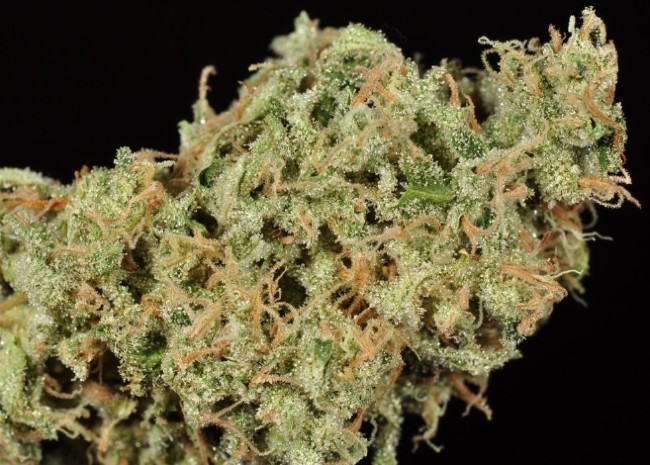What is THCV? | PotGuide.com
[ad_1]
Now that the world is slowly emerging from COVID-19 and more things are opening up, you may be rediscovering pants – you know, the kind with buttons and zippers. You put them on after blowing off the dust and think to yourself, “Wow. I guess I gained a few pounds.”
Maybe you could blame it on weed, after all, it’s a well-known fact that cannabis can give you the munchies. But did you know that there is a cannabinoid that may do the opposite of stimulating appetite but may suppress it instead? Please meet tetrahydrocannabivarin, aka THCV.
What is THCV?
As you might guess from its initials, THCV is molecularly similar to THC yet dissimilar enough to produce different effects. In low to moderate doses, THCV has little to no psychoactive properties and may in fact mitigate the high from THC. In higher doses, it is thought that THCV produces a more psychedelic, clear-headed high that comes on very quickly.
Both THC and THCV interact with the same cannabinoid receptor, CB1. However, THC fits perfectly into the receptor which may cause the surge in appetite. THCV, with its modified molecular structure, fits into the CB1 receptor differently and may act to block the reward centers in the brain associated with the pleasures of eating food. It’s been theorized that the presence of THCV in some cannabis strains may be one of the reasons that cannabis consumers on the average are thinner than nonconsumers, but that theory has yet to be thoroughly studied.

Thus far, substantive research on THCV lags far behind THC, CBD, and other cannabinoids, but early research has found that THCV could be useful for much more than suppressing appetite. It may act as an analgesic, antipsychotic, anti-epileptic, anti-diabetic, anti-cholesterol, anti-anxiety, and neuroprotective, meaning it may help protect the nervous system. It may also reduce nausea and vomiting, promote sleep, and help with bone formation and growth.
But, consumers (and perhaps marketers) tend to think about THCV as the cannabinoid that could help them lose weight, and there’s some science to back that up. A 2013 study found that THCV administered to obese mice did not help them lose weight, but instead increased their energy expenditure, or calorie burn. THCV also shows promise for those who have Type 2 diabetes, a condition affecting around 30 million Americans. A small study on a human cohort concluded that “THCV could represent a new therapeutic agent in glycemic control in subjects with Type 2 diabetes.”
How/Where Can I Get THCV?
Unlike CBD and THC, strains high in THCV are few and far between. Most strains contain zero to little THCV and definitely not enough of the cannabinoid to make a difference for any of the conditions one might hope to address.
Cannabis strains of African origin such as Durban Poison tend to have higher levels of THCV, which may have upwards of 0.5 percent – which still isn’t very much. However, most strains do not have this cannabinoid at all, which makes bringing the strain to the marketplace impractical for businesses looking to turn a profit.

Durban Poison is one of the few strains that does have THCV.
However, there are some companies dipping their toe in the THCV pool. In 2019, California-based Flow Kana introduced a limited edition THCV-rich cultivar called Pink Boost Goddess that contained 4.24 percent THCV.
Coming in with a much higher percentage of THCV are two vape pens from Doug’s Varin Original and Doug’s Varin Relief, containing approximately 25-30 percent THCV by weight. The company also has debuted a flower preroll with 3 percent THCV. Then there’s the Stimulate Tablingual from Level, which comes in with four milligrams THCV per tablet.
Strains High in THCV
Though none of these strains could be said to be THCV-rich, if you’d like to give the cannabinoid a try, here are some of the strains that have more THCV than others.
- Durban Poison is a South African sativa with sweet and spicy notes known for its clear-headed effect
- Girl Scout Cookies is a much sought-after hybrid believed to be a crossbreed of Durban Poison and OG Kush
- Sour Willie is a sativa-dominant hybrid with sharp mental and physical effects
- Skunk #1 is another sativa-dominant hybrid that will elevate your mood while providing pain and muscle relief
Though THCV has yet to find a niche in the cannabis marketplace, as the industry continues to grow and legalization expands, it’s probably only a matter of time until there are more THCV-rich products on dispensary shelves.
Have you tried any THCV products? What did you think of them? Share in the comments below!
[ad_2]
Source link

